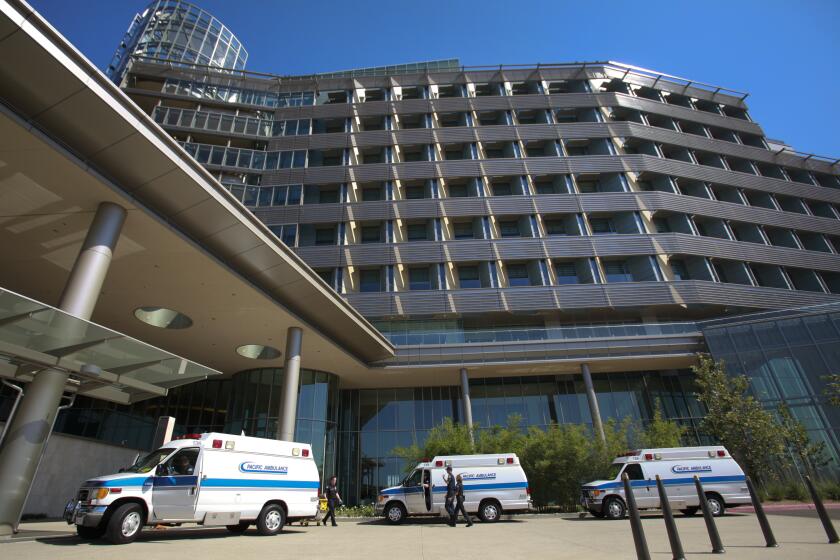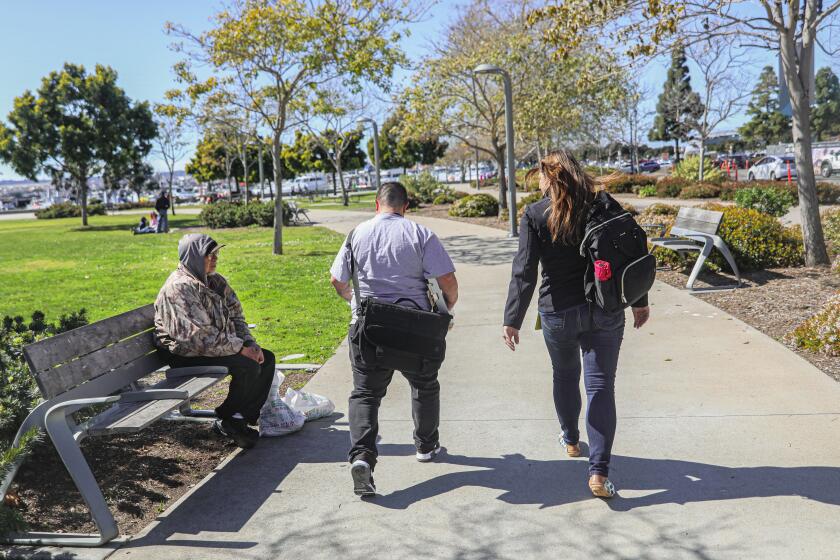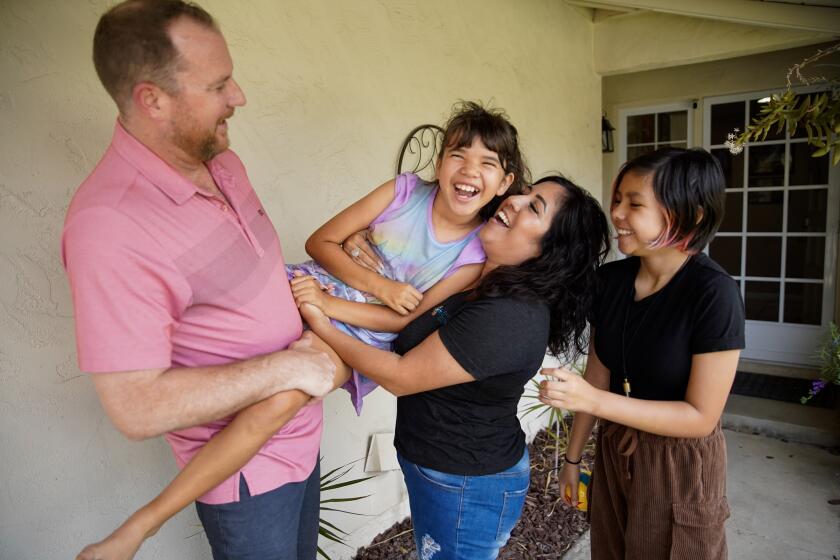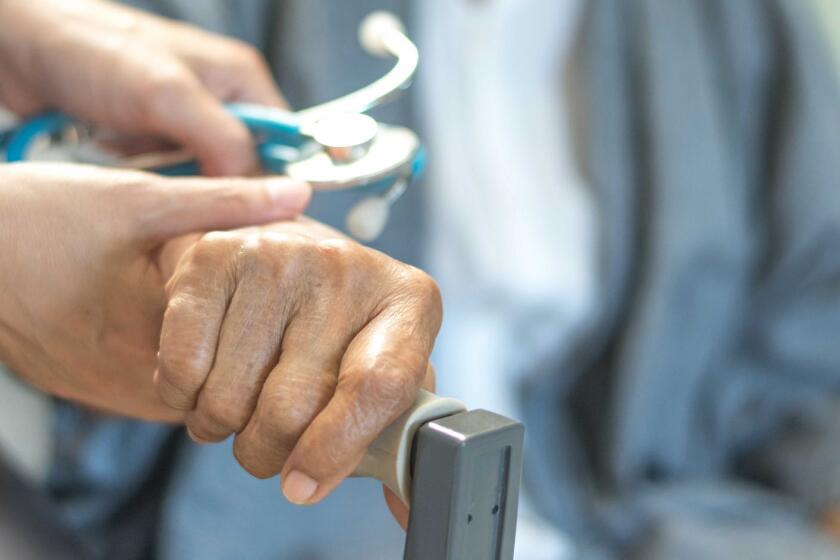Six months in, Alzheimer’s Response Team shows promising results

Early results produced by a new effort to help first responders handle dementia-related calls are encouraging enough that some are already thinking about how to expand the program to other communities across the region.
Created in June with funding from Grossmont Healthcare District and the county Board of Supervisors, the Alzheimer’s Response Team announced Wednesday that it handled 50 referrals and opened 22 assistance cases in its first six months of operation. Eight of those cases, according to county records, had severe symptoms such as wandering, confusion or lashing out at caregivers.
Those numbers, said county Supervisor Dianne Jacob, are encouraging because each represents a situation where an East County family caring for a loved one with Alzheimer’s or another form of dementia received help without ending up in a local emergency department or, even worse, a local lock-up.
“When we created the team, we were looking for a different path,” Jacob said. “Individuals who have Alzheimer’s or a related dementia can become verbally or physically anxious, but they don’t belong in jail. They don’t belong in a hospital emergency room.”
Though it’s called a team, this unit does not have uniforms or vehicles. There are no patches on shoulders that declare it as some sort of distinct entity.
Rather, this team is a collaborative construct built of deputy sheriffs, firefighters and other first responders in Santee and Lakeside, which make up the pilot project’s boundaries. They are linked with social workers, clinicians and other dementia experts with the county’s department of Aging & Independence Services and Alzheimer’s San Diego, a nonprofit that offers a wide range of services to families coping with memory loss.
Much of the initial work, said Kimberly Gallo, director of Aging & Independence Services, was training first responders on the ins and outs of dementia, providing instruction on the types of actions that are most likely to escalate a situation and on how to better pick up on clues that indicate Alzheimer’s or another form of neurodegenerative disease might be involved.
“We trained more than 350 responders, social workers, mental health clinicians and others,” Gallo said.
Training ranged from spotting signs of memory loss and cognitive changes to tips on avoiding confrontation and identification of potential physical, emotional or environmental triggers. First responders were also given cards with contact numbers for those who could provide services from caregiver training and support and case management to respite care and legal services.
Going out and meeting with first responders went a long way toward helping to fine tune the emergency response in the two cities where the pilot program was active, said Jessica Empeño, vice president of programs and operations for Alzheimer’s San Diego.
“The professionals we worked with, they see these signs every day,” Empeño said. “Firefighters, they know these families in their areas are struggling, but they didn’t necessarily know what they could do about it. In the training, you could see the lightbulb going on.”
Sgt. Karl Miller, who is part of the Sheriff’s Department’s elder abuse division, said that the team approach has given deputies a quick way to get more in-depth analysis of which services a family might need, whether it’s respite for worn-out caregivers or help placing a late-stage Alzheimer’s patient in a residential facility.
Though data from the first six months of operation still must be analyzed, Miller said it’s already clear that East County deputies are spending less time transporting residents with dementia to emergency departments.
“Now these situations are being taken care of right away, and the deputies can say, ‘OK, we can move on to the next call,’” Miller said.
Diversion is the biggest goal of the program. Alzheimer’s, which usually progresses over a period of years, gradually requires caregivers to provide more and more care, often stressing out spouses to the point that they themselves end up in hospitals.
The absence of a familiar caregiver can often force law enforcement to transfer Alzheimer’s patients to local emergency departments because they may be a danger to themselves or others. It’s also common for law enforcement to be called to residences caring for Alzheimer’s and dementia patients over and over again as their condition worsens.
But that kind of recurring emergency is happening less, participants say, since the team got up and running. So far, Empeño said, of the 22 cases opened, return visits from law enforcement are being avoided.
“We have not seen any of those cases call 911 out of desperation after the team has gotten involved,” Empeño said.
Though the pilot program cost about $1 million and providing pre-emptive social services has created additional up-front costs, that expense is countered to some extent by reducing the burden on emergency departments and jails.
At this point, Jacob said, expansion to other communities in the county where demographics indicate a greater-than-average need makes sense even if doing so might require additional funding. Providing these services, she said, is not just about a financial bottom line.
“How we help our most vulnerable tells a lot about us as a community,” Jacob said.
Health Playlist


Video: Leaders urge public to help extinguish hepatitis outbreak
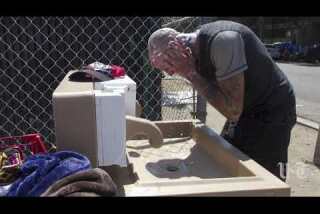
San Diego starts cleansing sidewalks, streets to combat hepatitis A

Video: Scripps to shutter its hospice service

Video: Scripps La Jolla hospitals nab top local spot in annual hospital rankings

Video: Does a parent's Alzheimer's doom their children?

EpiPen recall expands

Kids can add years to your life
paul.sisson@sduniontribune.com
(619) 293-1850
Twitter: @paulsisson
Get Essential San Diego, weekday mornings
Get top headlines from the Union-Tribune in your inbox weekday mornings, including top news, local, sports, business, entertainment and opinion.
You may occasionally receive promotional content from the San Diego Union-Tribune.

